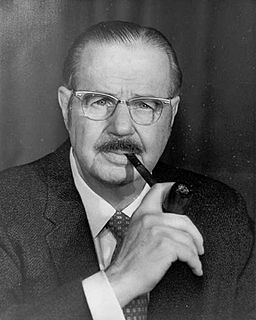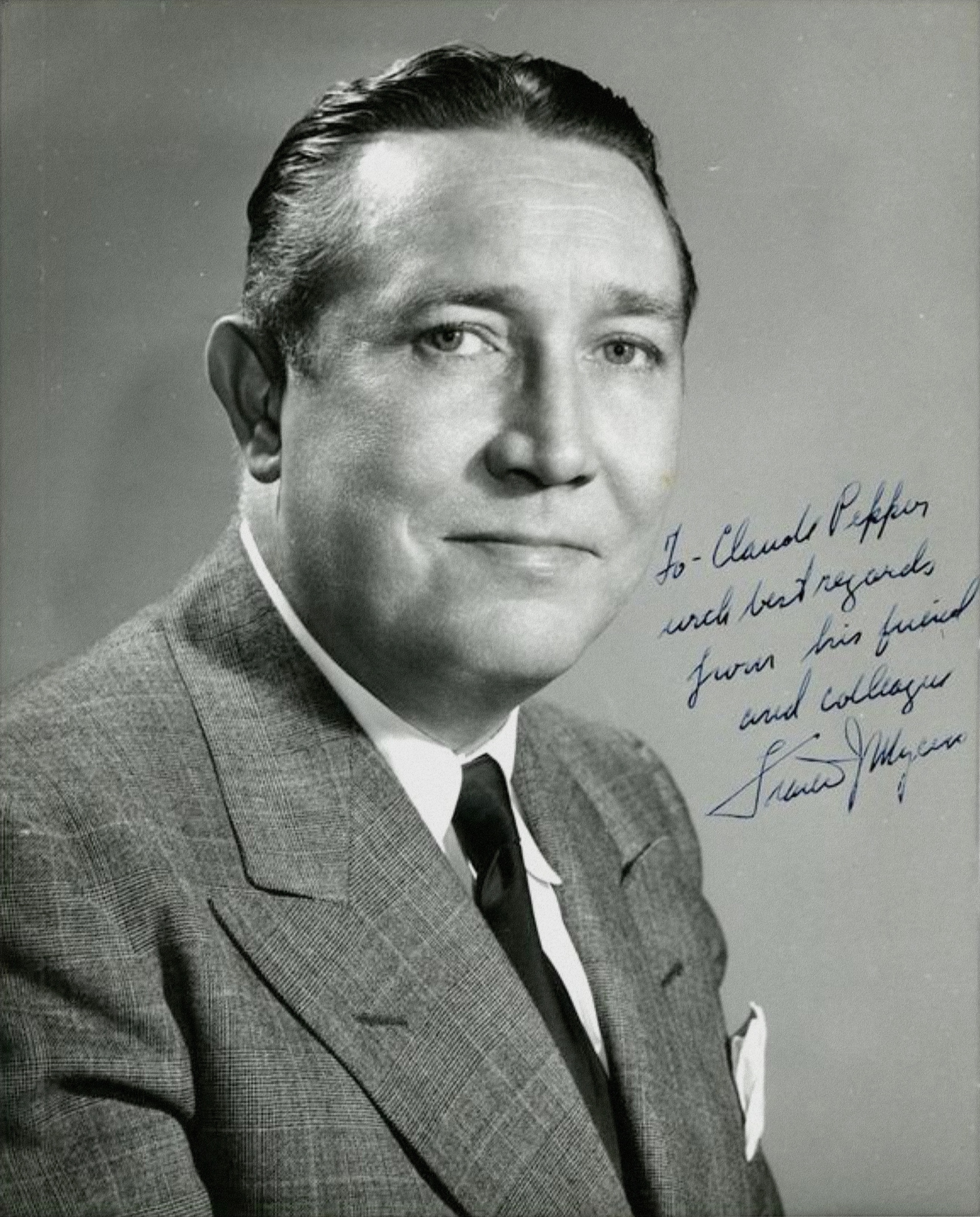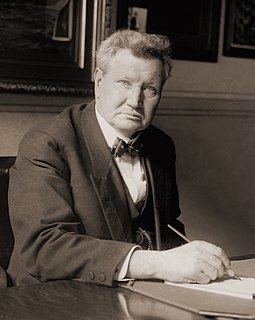
Henry Clarence Dworshak, Jr. was a United States Senator and Congressman from Idaho. Originally from Minnesota, he was a Republican from Burley, and served over 22 years in the House and Senate.

Hugh Doggett Scott Jr. was an American lawyer and politician. A member of the Republican Party, he represented Pennsylvania in the United States House of Representatives and the United States Senate. He served as Senate Minority Leader from 1969 to 1977.

The 1978 United States Senate elections in the middle of Democratic President Jimmy Carter's term. Thirteen seats changed hands between parties. The Democrats at first lost a net of two seats to the Republicans, and then one more in a special election. Democrats nevertheless retained a 58-41 majority.

The 1976 United States Senate elections was an election for the United States Senate that coincided with Democratic Jimmy Carter's presidential election and the United States Bicentennial celebration. Although almost half of the seats decided in this election changed parties, Carter's narrow victory did not provide coattails for the Democrats, and the balance of the chamber remained the same.

The 1950 United States Senate elections occurred in the middle of Harry S. Truman's second term as President. As with most 20th-century second-term mid-terms, the party out of the Presidency made significant gains. The Republican opposition made a net gain of five seats, taking advantage of the Democratic administration's declining popularity during the Cold War and the aftermath of the Recession of 1949. The Democrats held a narrow 49 to 47 seat majority after the election. This became the first time since 1932 that the Senate Majority Leader lost his seat and the only instance where the majority leader lost his seat while his party retained the majority.

The United States Senate elections of 1926 were elections for the United States Senate that occurred in the middle of Republican President Calvin Coolidge's second term. The Republican majority was reduced by six seats.

The Sixty-ninth United States Congress was a meeting of the legislative branch of the United States federal government, consisting of the United States Senate and the United States House of Representatives. It met in Washington, D.C. from March 4, 1925, to March 4, 1927, during the third and fourth years of Calvin Coolidge's presidency. The apportionment of seats in the House of Representatives was based on the Thirteenth Decennial Census of the United States in 1910. Both chambers had a Republican majority.

The Seventieth United States Congress was a meeting of the legislative branch of the United States federal government, consisting of the United States Senate and the United States House of Representatives. It met in Washington, D.C. from March 4, 1927, to March 4, 1929, during the last two years of Calvin Coolidge's presidency. The apportionment of seats in the House of Representatives was based on the Thirteenth Decennial Census of the United States in 1910. Both chambers had a Republican majority.

Francis John Myers was an American teacher, lawyer, and politician. A member of the Democratic Party, he served as a U.S. Representative (1939–1945) and a U.S. Senator (1945–1951) from Pennsylvania. He was Senate Majority Whip from 1949 to 1951.
The United States Senate elections of 1872 and 1873 were elections which had the Republican Party, while still retaining a commanding majority, lose two seats in the United States Senate. By the beginning of the Congress, however, they'd lost three more: two as defections to the Liberal Republican Party, and one a resignation of Henry Wilson to become U.S. Vice President. These elections also coincided with President Ulysses S. Grant's easy re-election.
The United States Senate elections of 1866 and 1867 were elections that saw the Republican Party gain two seats in the United States Senate as several of the Southern States were readmitted during Reconstruction, enlarging their majority.

The 1976 United States Senate election in Pennsylvania was held on November 2, 1976. Incumbent Republican U.S. Senator and Minority Leader Hugh Scott decided to retire. Republican John Heinz won the open seat.

The 1930 United States Senate special election in Pennsylvania was held on November 4, 1930. Joseph R. Grundy, incumbent Republican appointed to fill the vacancy created by the unseating of William Scott Vare, was defeated for re-nomination. The Republican nominee, James J. Davis, defeated Democratic nominee Sedgwick Kistler to win the election.

The 1916 United States Senate election in Pennsylvania was held on November 7, 1916. Incumbent Republican U.S. Senator George T. Oliver was not a candidate for re-election. The Republican nominee, Philander C. Knox defeated Democratic nominee Ellis C. Orvis.

The 1922 United States Senate special election in Pennsylvania was held on November 7, 1922. Incumbent Republican Senator George Pepper, who had been appointed to the seat by Governor William Sproul following the death of Boies Penrose, was elected to fill the remaining four years on the term to which Penrose had been elected in 1920. Pepper comfortably defeated five other candidates, including Democratic nominee Fred Kerr of Clearfield County.

The 1988 United States Senate election in Pennsylvania was held on November 8, 1988. Incumbent Republican U.S. Senator H. John Heinz III successfully sought re-election to another term, defeating Democratic nominee Joe Vignola.

The 1958 United States Senate elections in Arizona took place on November 4, 1958. Incumbent Republican U.S. Senator Barry Goldwater ran for reelection to a second term, and defeated former U.S. Senator, and then-Governor, Ernest McFarland in the general election. The election was a virtual rematch from 1952, where Goldwater defeated McFarland by a narrow margin. Goldwater had attributed the win to the unpopularity of President Harry S. Truman and popular Wisconsin Senator Joseph McCarthy endorsing his campaign.

The 1867 United States Senate election in Pennsylvania was held on January 15, 1867. Simon Cameron was elected by the Pennsylvania General Assembly to the United States Senate.

























